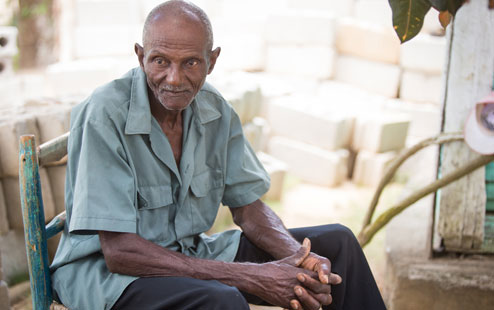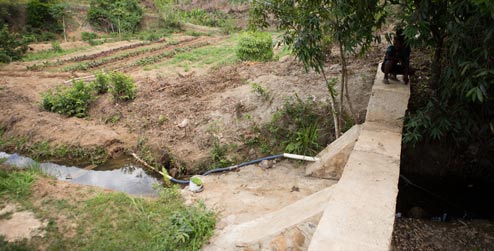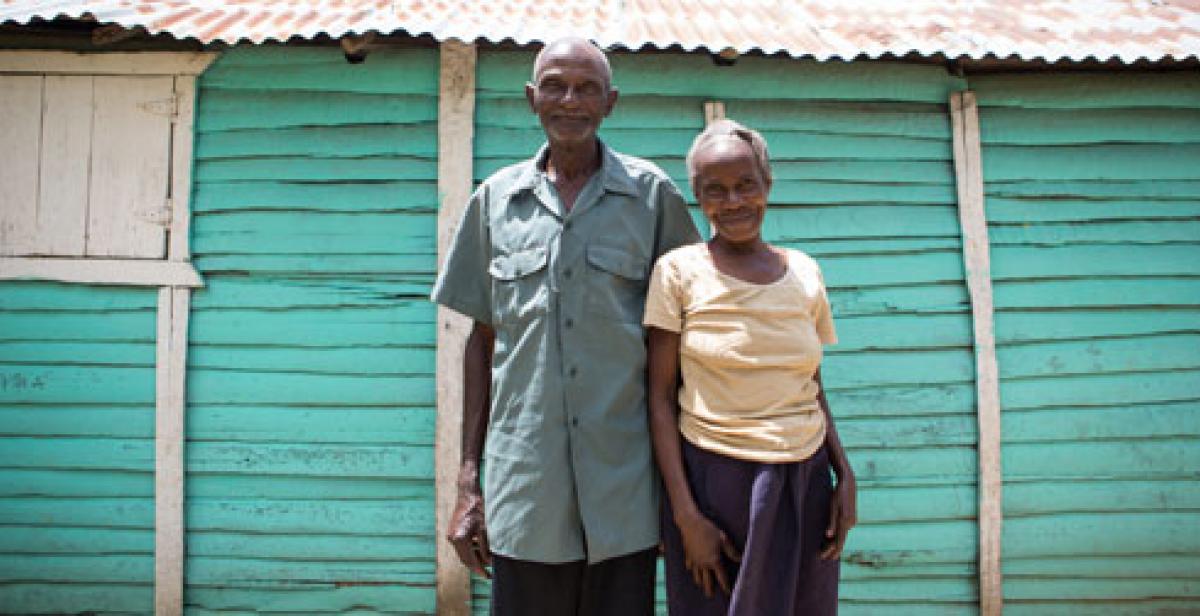Progressio's Esther Trewinnard writes:
A few years ago, I took a friend of mine who was visiting the UK from Tanzania to a talk given by a leading scientist on the Intergovernmental Panel on Climate Change (IPCC). On the train back home she turned to me and said, “You will be OK, but we in Africa are going to die.” My response was pathetic and helpless, but the best I could come up with was: “Don’t be silly, we’re in this together.”
But are we really in it together? And what does standing together in solidarity mean when the impact of post-industrial climate change differs depending on where you live in the world?
The UK Environment Minister, Owen Paterson, has set a poor example of global solidarity with his narrow interpretation of the latest report by the IPCC, a group of the world’s leading climate scientists. He has been accused by leading scientists of being “irresponsible” and “misleading” in his comments downplaying the effects of climate change in the UK and overlooking inevitable food and water security challenges and human suffering.
But should we be surprised when people bury their heads in the sand on this issue? Maybe it would be better for everybody, my friend in Tanzania included, if they were to actually listen to what the scientists – and people already experiencing the effects of climatic changes – are saying.

“Over the years, the amount of water in the rivers has reduced because of deforestation, soil degradation and the changing climate,” explains Placide, 69 (above), sitting in the shade of a tree near his home in Lamine, Haiti. Placide grows cocoa, plantains, red peppers, sweet potatoes, peas and potatoes. He is totally dependent on agriculture for his livelihood, and inconsistent rainfall makes his life really difficult.
“Before, agriculture was more productive and we were able to sell surplus crops at market, but we can’t grow as much anymore. There is less rain. Both the quality and the quantity of water have decreased. We are concerned that it will continue to get worse in the future,” Placide says.
The IPCC report suggests that a child born today may live to see global temperatures rise by up to 6°C. Placide is rightly worried for his sons and for future generations. We in the UK should be concerned as well.
The IPCC reports with as much certainty as science can offer that climate change is real and is caused by human activity. It requires urgent action. Sea levels are rising, glaciers are melting, precipitation patterns are changing, sea ice is declining and oceans are acidifying.
“The debate is over,” explains Lis Wallace, Progressio’s Environment Policy Officer. “The sooner we realise that as a human species we are in this together, the more chance we have to adapt. It is no longer a question of whether climate change is happening or not, it’s a question of how we respond to it.”

Placide and his family are working hard to manage the risks associated with climate change where they live. With the help of Progressio partner Solidarite Fwontalye they are learning different farming techniques, how to be more productive and how to sustainably use the resources that they have.
“In order to cope with extremes of floods and droughts we have built a water-retaining wall [see photo above] to limit the damage of tropical storms and we have planted trees and restored ravines in order to protect against soil erosion and landslides,” explains Placide’s son Kesnal, 20.
Floods and droughts are nothing new to Central America and the Caribbean, but the IPCC report suggests that they are likely to be more frequent, more dramatic and cause more water stress in coming decades.
Local interventions mean that farming communities are better prepared to cope with the impact of climatic changes. But we also need global commitment. That means changing our lifestyles, being less wasteful with our resources and energy supplies, and holding our politicians to account for the decisions they make on our behalf.
Yes, people do ‘get emotional’ about climate change. People care because it is real. It is having an impact on our friends, families and people we care about even though we’ve never met them. ‘Getting emotional’ is a justified human response. The rational science agrees that the debate is over, now it’s time to invest in adaptation for all of humanity, with those who are most vulnerable given the top priority.
Esther Trewinnard is Progressio's Communications Officer.
Photo at top: Placide and Marie-Jocelyne outside their home in Lamine, Haiti (photo © Fran Afonso/Progressio)



